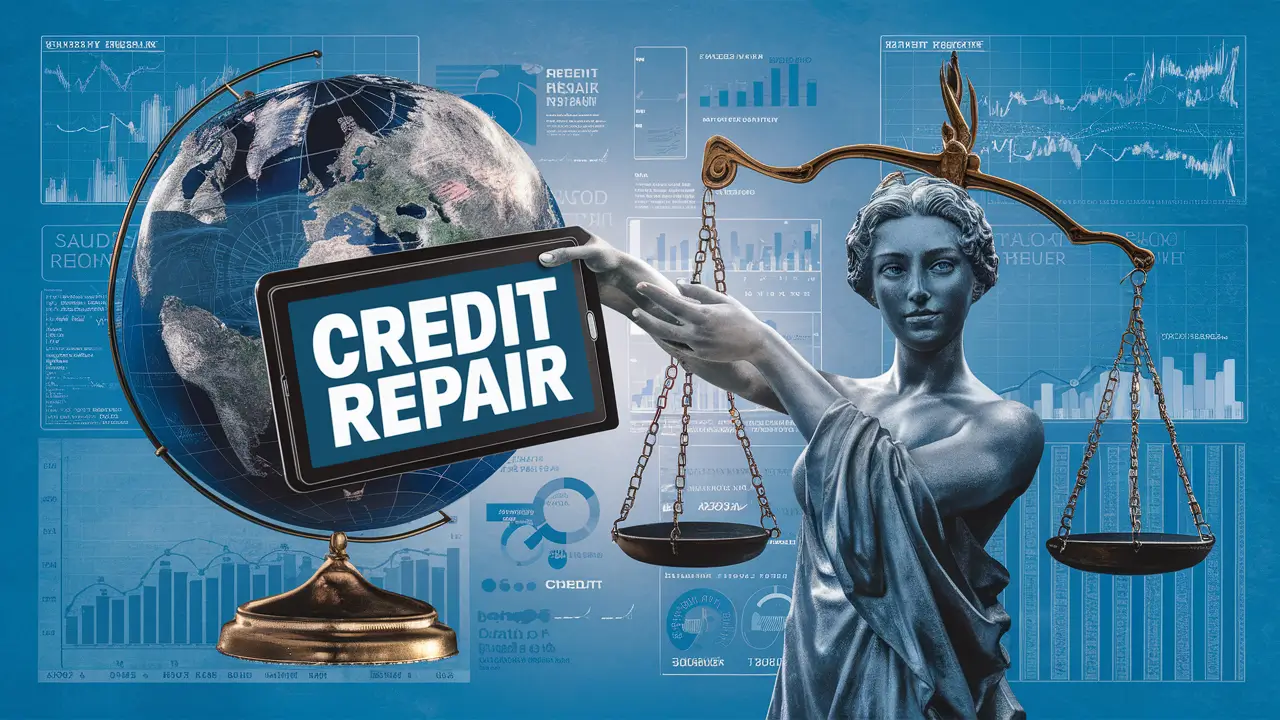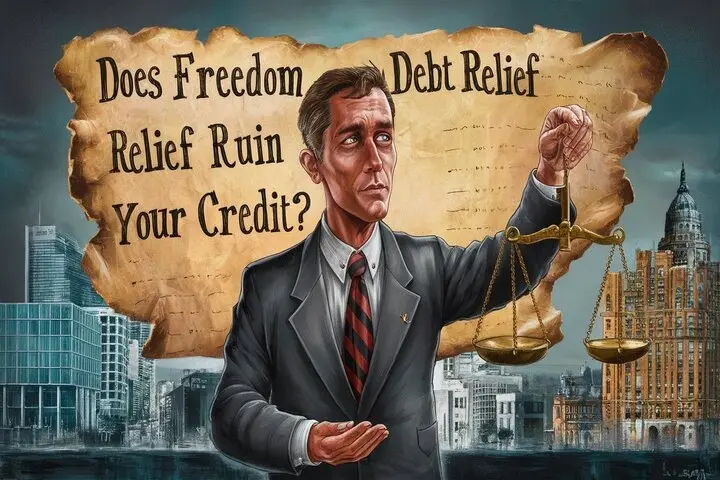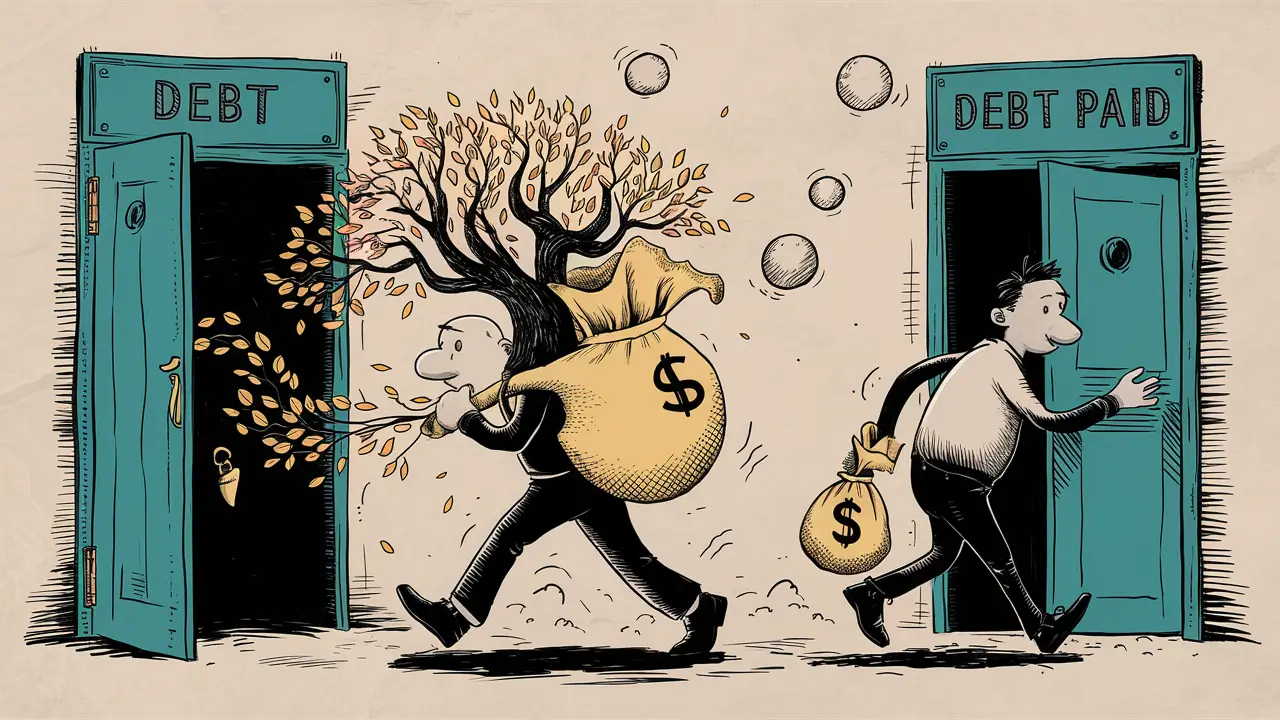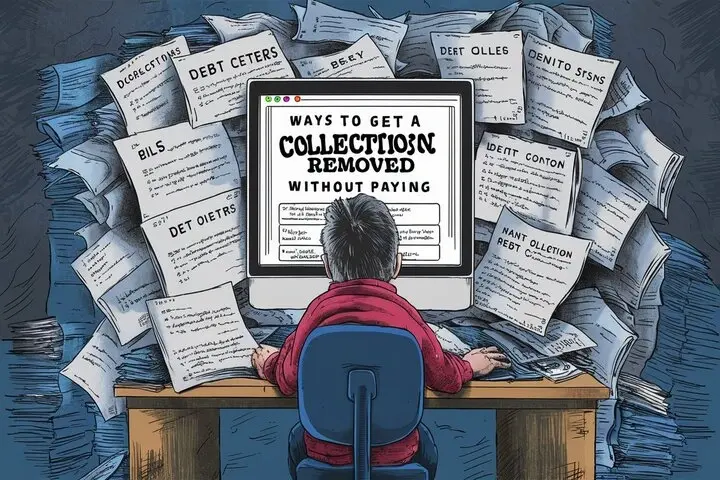-
Posted on: 25 Jul 2024

-
Dealing with overwhelming debt can feel like an impossible burden. Many people seek solutions, and one popular option is the Freedom Debt Relief program. But what exactly is the Freedom Debt Relief program, and is it the right choice for you? This comprehensive guide will provide you with a detailed overview of the program, covering its mechanics, benefits, risks, eligibility criteria, and available alternatives. By the end of this article, you'll have a clear understanding of whether Freedom Debt Relief aligns with your financial goals and circumstances.
Understanding Debt Relief Programs in General
Before diving into the specifics of Freedom Debt Relief, it's crucial to understand the broader landscape of debt relief programs. These programs are designed to help individuals struggling with unsecured debt, such as credit card debt, personal loans, and medical bills. These programs aim to reduce the total amount owed or make the debt more manageable through various strategies.
Common types of debt relief include:
- Debt Management Plans (DMPs): Offered by credit counseling agencies, DMPs involve working with a counselor to create a budget and negotiate lower interest rates with creditors. You typically make a single monthly payment to the agency, which then distributes the funds to your creditors.
- Debt Consolidation Loans: These loans combine multiple debts into a single loan, often with a lower interest rate. This can simplify repayment and potentially save money over time, provided you qualify for a favorable interest rate.
- Debt Settlement: Debt settlement involves negotiating with creditors to pay a lump sum that is less than the total amount owed. This is the approach used by Freedom Debt Relief. It's important to note that this can negatively impact your credit score.
- Bankruptcy: A legal process that can discharge some or all of your debts. While bankruptcy offers a fresh start, it has significant long-term consequences for your credit and financial future.
What is Freedom Debt Relief?
Freedom Debt Relief is a debt settlement company that helps individuals negotiate with their creditors to reduce the amount of debt they owe. The program is designed for people struggling with unsecured debt and who are unable to make their minimum payments. Freedom Debt Relief doesn't lend you money; instead, they act as an intermediary between you and your creditors to negotiate settlements.
How Freedom Debt Relief Works: A Step-by-Step Breakdown
- Initial Consultation: The process begins with a free consultation where you discuss your financial situation with a Freedom Debt Relief consultant. They will assess your debt load, income, and expenses to determine if the program is a good fit.
- Enrollment: If you're eligible and decide to enroll, you'll sign an agreement outlining the terms of the program, including fees and payment schedules.
- Dedicated Savings Account: You'll be instructed to stop making payments to your creditors and instead deposit a monthly amount into a dedicated savings account that you control. This account will be used to accumulate funds for negotiating settlements.
- Negotiation Process: Freedom Debt Relief's team of negotiators will contact your creditors to negotiate settlements on your debts. They aim to reduce the principal balance owed.
- Settlement Approval and Payment: When a settlement is reached, you'll review and approve the agreement. Funds from your dedicated savings account will then be used to pay the settled amount.
- Debt Resolution: This process continues until all enrolled debts are settled, or until you decide to leave the program.
Key Features of the Freedom Debt Relief Program
- Negotiation Expertise: Freedom Debt Relief employs experienced negotiators who understand the strategies and tactics involved in debt settlement.
- Dedicated Support: You'll typically be assigned a dedicated account manager who will guide you through the process and answer your questions.
- Customized Plan: The program is tailored to your individual financial situation and debt load.
- Educational Resources: Freedom Debt Relief often provides resources and tools to help you improve your financial literacy.
- Transparency: They typically outline their fees and the potential impact on your credit score upfront.
The Benefits of Using Freedom Debt Relief
The Freedom Debt Relief program can offer several potential benefits for individuals struggling with overwhelming debt:
- Reduced Debt: The primary benefit is the potential to reduce the total amount of debt you owe through negotiated settlements.
- Simplified Payments: You make a single monthly payment to your dedicated savings account, simplifying your financial obligations.
- Debt Freedom: Successfully completing the program can lead to freedom from debt and a fresh financial start.
- Professional Assistance: You receive guidance and support from experienced debt negotiators.
- Potentially Lower Monthly Outlay: The combined payment to your dedicated savings account might be lower than the sum of your minimum payments on individual debts (though this depends on the settlement amounts achieved).
The Risks and Drawbacks of Freedom Debt Relief
While the Freedom Debt Relief program offers potential benefits, it's essential to be aware of the associated risks and drawbacks:
- Negative Impact on Credit Score: Debt settlement typically involves stopping payments to your creditors, which will negatively impact your credit score. Late payments will be reported to credit bureaus, and settled accounts are often viewed negatively by lenders.
- Potential for Lawsuits: Creditors may pursue legal action to collect the full amount owed, especially if negotiations are unsuccessful.
- Fees: Freedom Debt Relief charges fees for its services, which are typically a percentage of the total enrolled debt. These fees can add significantly to the overall cost of the program.
- Tax Implications: The amount of debt forgiven through settlement may be considered taxable income by the IRS. You may receive a 1099-C form and be required to report the forgiven debt on your tax return.
- No Guarantee of Success: There is no guarantee that Freedom Debt Relief will be able to settle all of your debts, or that the settlements will be favorable. Creditors are not obligated to accept settlement offers.
- Long-Term Commitment: Debt settlement programs typically take 2-4 years to complete, requiring patience and commitment.
- Possible Harassment from Creditors: Until debts are settled, creditors may continue to contact you to collect payments.
Who is Eligible for the Freedom Debt Relief Program?
While eligibility requirements may vary, here are some general criteria that Freedom Debt Relief typically considers:
- Unsecured Debt: The program is primarily designed for individuals with unsecured debt, such as credit card debt, personal loans, and medical bills.
- Sufficient Debt: You generally need to have a minimum amount of debt to qualify for the program. This amount typically ranges from $7,500 to $10,000 or higher.
- Financial Hardship: You must demonstrate that you are experiencing financial hardship and are unable to make your minimum payments.
- Consistent Income: You need to have a stable source of income to make the required monthly payments into your dedicated savings account.
- State Residency: Freedom Debt Relief may not be available in all states due to regulatory restrictions.
Alternatives to Freedom Debt Relief
Before enrolling in the Freedom Debt Relief program, it's essential to explore alternative debt relief options:
- Debt Management Plan (DMP): Work with a credit counseling agency to create a budget and negotiate lower interest rates with creditors.
- Debt Consolidation Loan: Combine multiple debts into a single loan with a potentially lower interest rate.
- Balance Transfer Credit Card: Transfer high-interest credit card balances to a card with a 0% introductory APR.
- Negotiate Directly with Creditors: Attempt to negotiate payment plans or settlements directly with your creditors.
- Bankruptcy: Consider bankruptcy as a last resort if other options are not viable. Consult with a bankruptcy attorney to understand the implications.
- Budgeting and Expense Reduction: Creating a detailed budget and cutting unnecessary expenses can free up more funds to pay down debt.
- Increasing Income: Explore options for increasing your income, such as taking on a part-time job or freelancing.
Making an Informed Decision
Choosing the right debt relief solution is a personal decision that should be based on your individual financial circumstances and goals. Carefully weigh the benefits and risks of each option, and consider seeking advice from a qualified financial advisor before making a decision.
Before enrolling in Freedom Debt Relief, be sure to:
- Read the fine print: Understand all the terms and conditions of the program, including fees, payment schedules, and potential consequences.
- Check their reputation: Research Freedom Debt Relief's reputation and read reviews from other customers. Look for any complaints filed with the Better Business Bureau or other consumer protection agencies.
- Get everything in writing: Ensure that all agreements and promises are documented in writing.
- Understand your rights: Familiarize yourself with your rights as a consumer under the Fair Debt Collection Practices Act (FDCPA).
- Consider other options: Explore all available debt relief options before committing to a debt settlement program.
Debt relief is a serious matter, and it's important to approach it with careful consideration and due diligence. By understanding the Freedom Debt Relief program and its alternatives, you can make an informed decision that aligns with your financial goals and helps you achieve a brighter financial future.











